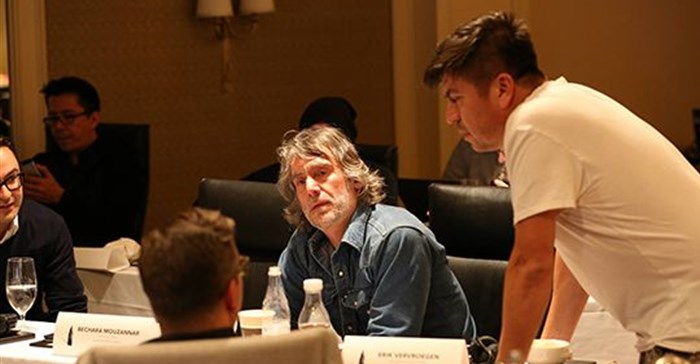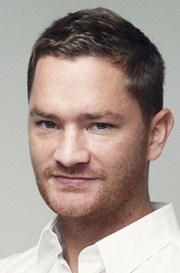Michael O'Rourke, president of New York Festivals' World's Best Advertising? Awards, shares his perspective on judging what's deemed as the best advertising globally.
The New York Festivals (NYF) annually brings together prominent CCOs from around the world to judge across all mediums to select the world’s best advertising.
In the first of a three-part interview series, O’Rourke discusses the NYF’s unique two-tier judging system, behind-the-scenes exchanges in the jury room, and more…
1. The New York Festivals World’s Best Advertising Awards Executive Jury and Grand Jury are forces to be reckoned within the industry. How do you go about recruiting these creative game changers and thought leaders to judge the competition?
O’Rourke: A tremendous amount of effort goes into selecting the Executive Jury every year.
We’re provided with the honour of assembling such a talented and respected group of industry thought leaders from countries all over the world, representing every major market and discipline. To accomplish this, we focus on a simple, yet strategic approach; listening and observing. We spend a significant amount of time researching the people who have a profound impact on the industry with respect to innovation and dedication and focus on those who demonstrate a vested interest in improving the industry and the work that drives it. In addition, we also concentrate on developing a well-rounded collection of jury members, representing various disciplines and markets to ensure fairness and integrity when it comes to evaluating each entry.
2. The NYF’s unique judging system that brings together two distinguished juries. What was the impetus for creating this two-tiered system?
O’Rourke: The two-tiered judging system, where we assemble the Grand Jury to determine the shortlist and the Executive Jury to determine the medals, originated with the intention of creating more time for each group to evaluate the entries. Jury fatigue is often times a source of frustration in any award show, so we wanted to take a unique approach to address this issue. Once the Executive Jury convenes in NYC, we continue the process at a point where the work that advances has already been carefully screened and deemed worthy of advancing towards medal contention. This allows the Executive Jury to then evaluate all entries across all mediums, in an environment that provides more time for the discussion and debate of the work itself—something that all participants can appreciate, and deserve.
3. Are there any categories that the juries especially enjoy judging? What aspects of judging are most and least favourable?
O’Rourke: I find that the Executive Jury enjoys seeing work from all competitions and categories, as this is an aspect of the NYF that jury members appreciate. It presents an opportunity to see what’s being done across all verticals of creative communications and within these verticals exist campaigns that are fresh and innovative. So, there’s a real appreciation for having the ability to engage in work that embraces great ideas and exemplifies thorough execution. Having said that, the ever-trending and, in some situations inflated, case study video could be the least favourable aspect of judging, regardless of the competition or medium. When done right, it elevates the campaign in so many ways. When done wrong, it has the potential to overshadow the work itself.

Image from last year's NYF judging session
4. What is the motivation for these busy executives to sit together for five days in a dark room judging? Can you share any comments you’ve heard at the judges table or the hotel bar?
O’Rourke: The work, that’s the key motivator! The opportunity to evaluate entries in every medium, from all over the globe, created to address a wide array of challenges, presents a unique platform for every jury member. This platform doesn’t exist anywhere else. So to be able to spend five days enthralled in the industry’s newest innovations is something the jury members appreciate and enjoy. Of course, it’s an added benefit that you get to spend the week in a room with like-minded people who face the same challenges you do, along with a chance to make some great friends. But at the end of the day, it’s the work and the discussions that revolve around it that keep people glued to their seats.
5. What sort of conversations take place in the judging room? Have you had a ‘clash of the titans’ occur over what creative work should earn trophies?
O’Rourke: One of the most inspiring things about the whole process is hearing the perspectives of people from all over the globe, representing different disciplines, cultures, and ways of approaching the work that’s in front of them. It’s creates an environment that encourages people to keep an open mind, to listen and appreciate the point of view that each jury member represents. And it’s a chance to learn. However, this doesn’t mean that it doesn’t get lively. When you put two dozen highly opinionated people who are deeply rooted in creativity in a room, you’re guaranteed to see some heated exchanges along with a lot of laughter. It’s a rollercoaster of opinions and emotions, and it’s extremely exciting to witness. At the end of the day, it’s about acknowledging the industry’s best, and when it’s all said and done, despite the highs and lows, you’re left with a group of people that accomplished an incredible task, together.
For more information, go to www.newyorkfestivals.com.









































